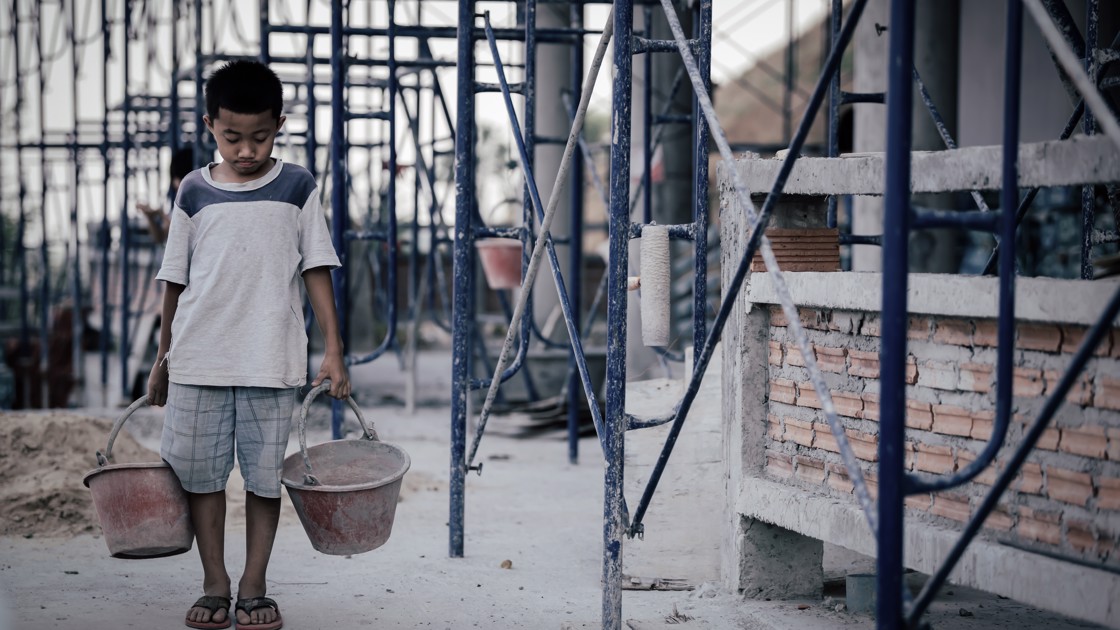Trade union rights are human rights. No worker, no matter where they live or what sector they are in should be subjected to forced labour. We call on EU policy makers to show real leadership and adopt strong and ambitious legislation which, if implemented and monitored properly, could drastically improve the lives of millions of workers across the world.
Today, the European Commission published its legislative proposal on Forced Labour which aims to ban products on the EU market which are produced, extracted, or harvested with forced labour. IndustriAll European Trade Union welcomes this proposal which will cover all sectors and all companies regardless of their size and should complement, the still much needed, ongoing work on Corporate Sustainability Due Diligence. Together, these two instruments could truly make a positive impact on the lives of millions of workers across the globe.
The ILO estimates that around 27.6 million people were in forced labour and around eight million people were in debt bondage. Forced labour can manifest itself in many ways from forced overtime, deductions from salaries (including for extremely poor and unsanitary accommodation), harassment, grave occupational health and safety concerns, and passport seizure which prevents workers from finding another job, and in the case of migrant workers, from returning to their home country.
Unfortunately, examples of forced labour can still be found today both in the EU, and outside the EU, in the manufacturing supply chain. Some shocking examples include workers at ATA Industrial, suppliers for Dyson in Malaysia who were allegedly subjected to forced labour, false imprisonment and dangerous working conditions and miners in Pakistan who were forced to work for more than ten hours a day without adequate safety equipment. Examples of forced labour can also be found in the EU, and a recent case at the port in Antwerp is being investigated with two subcontractors of the company Borealis, suspected of trafficking human beings. Several serious violations, including those related to illegal work, social security rules and non-compliance with wage legislation have been identified by federal and regional inspection services.
The European Commission’s proposal aims to eliminate all products made with forced labour from the EU market irrespective of where they are made. It includes all products from all companies, with a tailor-made- approach for SMEs to help reduce the administrative burden. The proposal also includes the ability for civil society to make submissions regarding cases of forced labour, a core demand of trade unions during the Commissions call for evidence. Furthermore, the proposal requests for products deemed as to have been made by forced labour destroyed, rendered inoperable, or otherwise disposed of in line with national law.
Judith Kirton-Darling, Deputy General Secretary at industriAll Europe said:
“The use of forced labour is abhorrent and urgent action is needed to bring this dreadful practice to an end whether within the EU or in global supply chains. While this proposed EU legislation will hopefully become a key part of our toolbox for Decent Work, it is clear that freedom of association and the right to collective bargaining must also be respected and applied as those “enabling” rights are key solutions to fully eradicate forced labour. Enforcement and adequate remediation for workers impacted need to strengthened.’’
The Commission’s proposal will now be debated and amended by the European Parliament and European Council. IndustriAll Europe is planning a clear EU advocacy campaign to ensure that the final legislation isn’t watered down and includes proper investment and commitment from Member States to ensure that checks can be completed, and that monitoring can take place in a transparent and fair manner. The remuneration of workers subjected to forced labour also needs to be clearly established with workers’ representatives at the centre of the discussions.
Judith Kirton-Darling added:
"Trade union rights are human rights. No worker, no matter where they live or what sector they are in should be subjected to forced labour. We call on EU policy makers to show real leadership and adopt strong and ambitious legislation which, if implemented and monitored properly, could drastically improve the lives of millions of workers across the world.’’
IndustriAll Europe’s submission to the European Commission’s Call for Evidence: EN
Contact: Elspeth Hathaway (policy advisor), press and communications
